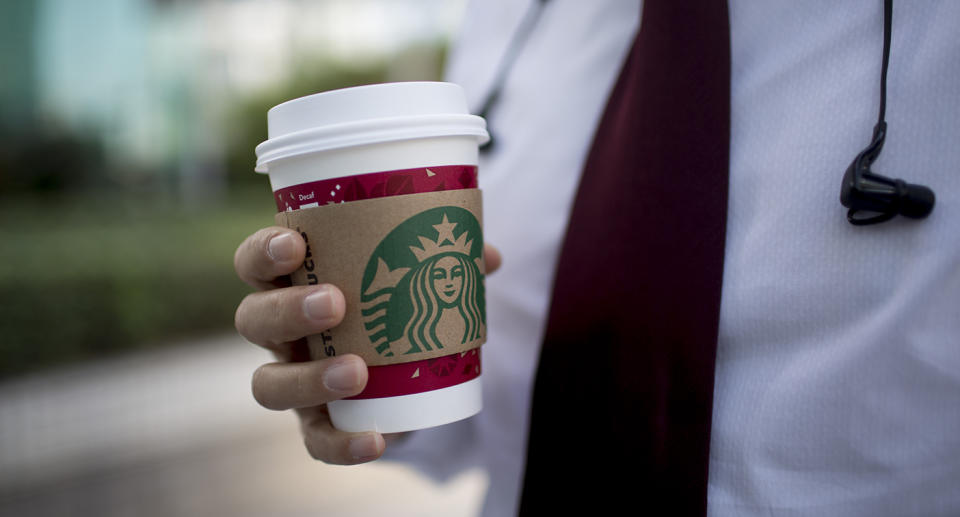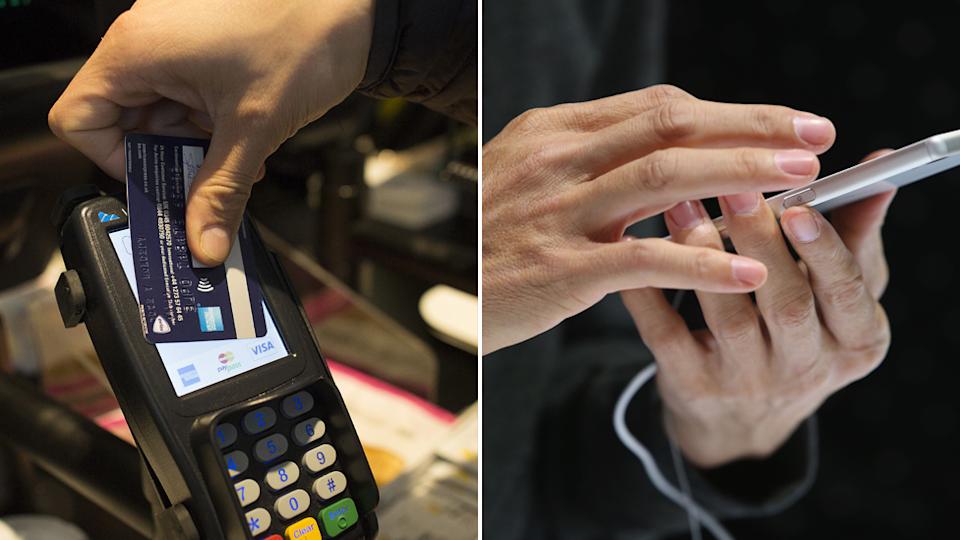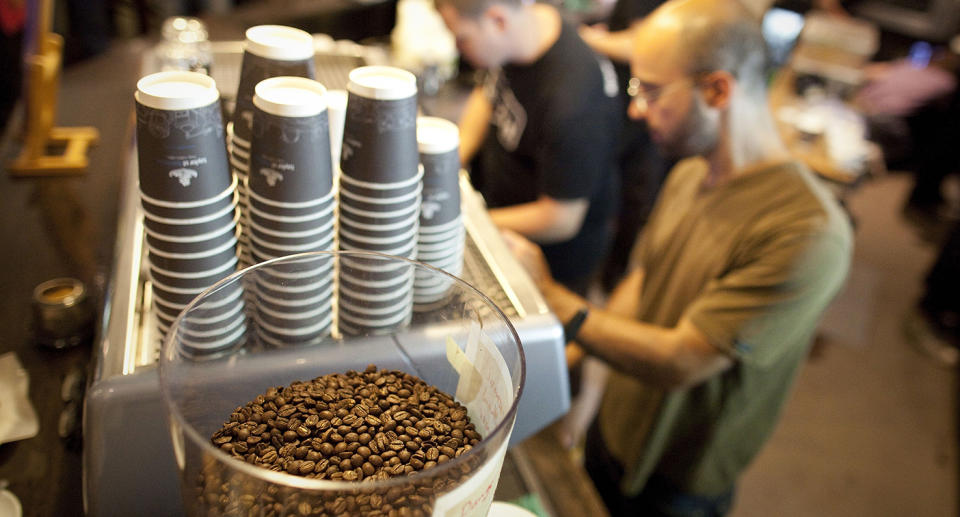Coronavirus: Is it safe to buy a takeaway coffee from a cafe?
As the number of confirmed coronavirus cases in Australia rises, Prime Minister Scott Morrison has announced tighter restrictions around social gatherings and which businesses can remain open.
And for those stuck at home looking for a break from work, or minding the kids, they may be wondering – is it safe to go out and get a takeaway coffee?
Are cafés still open?
Under the Australian government’s non essential business closure, cafés are now only allowed to operate through takeaway and home delivery.
Sitting down to eat or drink in cafés, restaurants and food courts is banned in all states across Australia.
Food delivery service apps like Uber Eats and Deliveroo can deliver coffee to your door and offer no-contact deliveries if you request it.

This means you can order, receive and drink your morning coffee without coming into contact with anyone.
How are cafés protecting their customers?
Starbucks, McDonalds, Gloria Jeans and Caltex stores recently announced staff would no longer be accepting customer owned reusable coffee cups in an effort to keep staff and customers safe.
This means all beverages will be served in disposable cups and any food items you purchase will be on disposable plates or containers.
“All beverages and food will be served with disposable cups, plates and cutlery,” a Starbucks spokesperson told Yahoo News.
Gloria Jeans has also moved every part of beverage and food preparation to behind their counter, so less hands come in to contact with your purchases.

“We have moved the coffee and condiments sections to ensure our in-store teams are completing coffee, food and other beverage orders behind the counter, rather than allowing the public to handle cup lids, sugar, stirrers, spoons or straws,” a Gloria Jeans spokesperson told Yahoo News Australia.
Most cafes and stores are also encouraging cashless payments as a way of minimising contact between staff and customers.
What can I do to be safe when I get my coffee?
The World Health Organisation confirms COVID-19 is spread person-to-person and by touching objects which have been contaminated by an infected person, so it’s best to avoid as much contact as possible.
Be mindful of what you touch with your hands and avoid using door handles, leaning on countertops or touching your face.

It’s best to practise social distancing by leaving 1.5 metres of space from people around you, even when standing in a queue for coffee.
You can also ask your local cafe if they use an app to pre-order and pay for your order from your phone to reduce the time you spend in store and offer less chance of contact.
A simple step is to pay with a card or your smart phone - this minimises the chance of touching hands while exchanging cash, which while not linked directly to coronavirus, has be proven to carry germs.
Can coronavirus be transmitted through food and drinks?

As COVID-19 is a relatively new virus, research is still emerging around how it can be transmitted to people.
Yahoo Lifestyle recently reported that an infectious disease expert said food is not a major risk factor as the virus attacks the respiratory system and not the digestive tract.
However, it is wise to avoid any food or beverages that were sneezed or coughed on.
How long does coronavirus survive on surfaces?
Droplets from an infected person coughing or sneezing can land on surfaces like countertops, handrails or eftpos machines and anyone can contract the virus if they touch these surfaces, doesn’t wash their hands and goes on to touch their face.
Research published on Yahoo Lifestyle Australia shows that coronavirus can live for up to four hours on copper, up to 24 hours on cardboard, and up to three days on plastic.

The research also showed that coronavirus could live on steel cutlery for up to three days if not washed correctly.
“We’re only using disposable cups and crockery, rather than re-usable items, to help limit the potential spread for the viruses,” a Gloria Jeans spokesperson told Yahoo News.
Starbucks and other major coffee chains have also put a pause on reusable crockery and cutlery.
Do you have a story tip? Email: newsroomau@yahoonews.com.
You can also follow us on Facebook, Instagram and Twitter and download the Yahoo News app from the App Store or Google Play.




